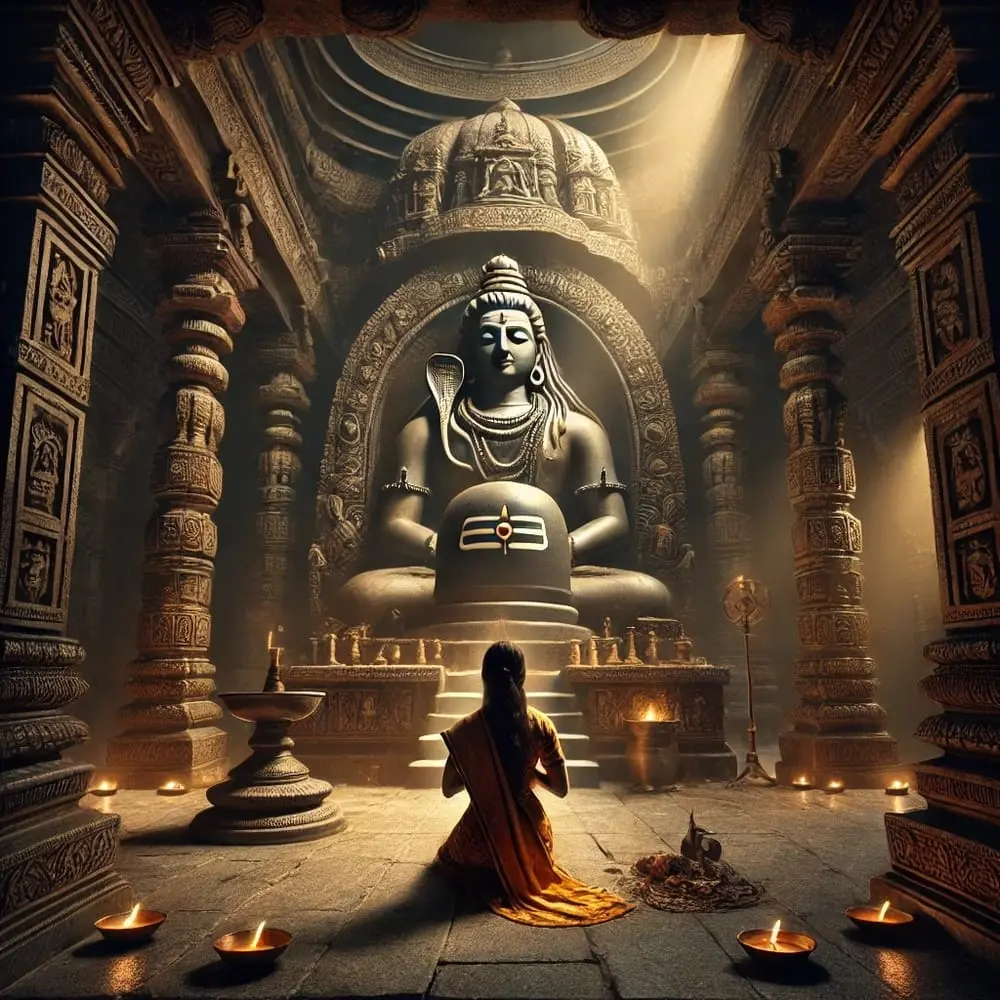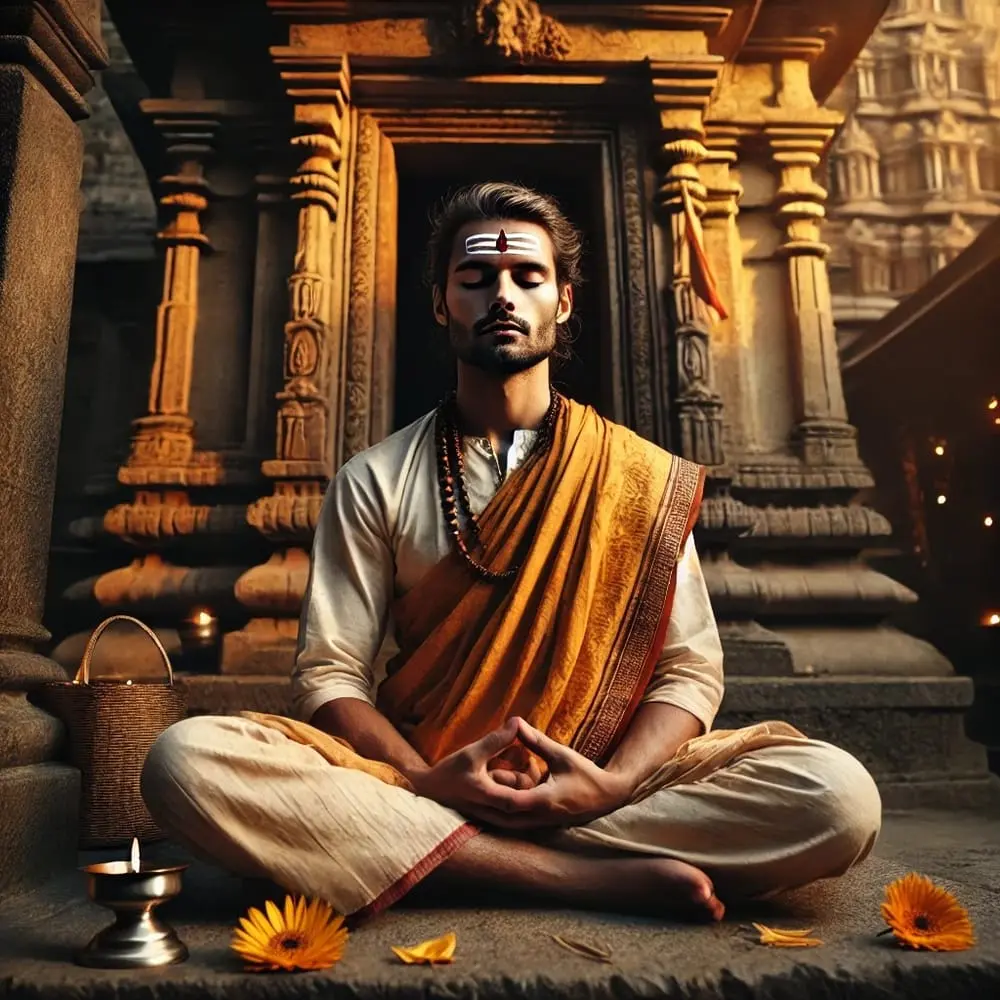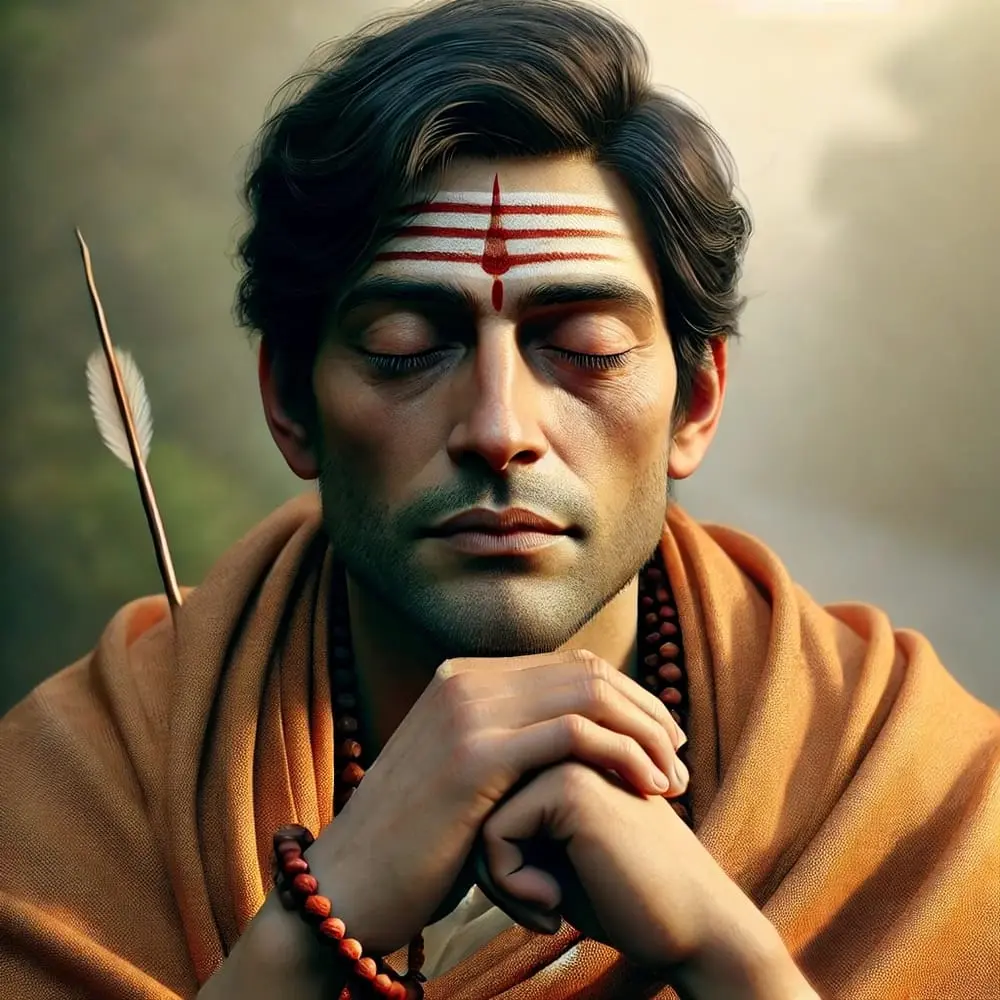As Shivratri approaches, millions of devotees worldwide are preparing to celebrate the night of Lord Shiva's divine grace. It is a time when people gather to offer prayers, chant mantras, and seek blessings from Lord Shiva. Shivratri offers a powerful opportunity to reflect on the deeper aspects of devotion, surrendering material desires, and embracing the transformative power of true Bhakti (devotion). The night holds immense significance, not just for its rituals, but for its potential to bring about spiritual growth and inner purification. The true essence of Bhakti lies in the devotion to Lord Shiva, where one surrenders worldly attachments and seeks to align with the divine will. This blog will explore how Bhakti, rooted in pure love for Lord Shiva, leads to the purification of the heart and mind, and how this can serve as a turning point for individuals on their spiritual journey.
The Meaning of Bhakti – More Than Just a Ritual
Bhakti, in its true form, is more than just chanting mantras, offering prayers, or performing rituals. It is an intense, heartfelt devotion and surrender to God, aiming to align oneself with the Divine. Bhakti means “up-asana” – to sit near the Lord. However, one must first ensure that the mind is free of distractions and material desires. When the mind is focused on worldly goals – such as wealth, status, or power – it cannot truly connect with the Lord.

A good example can be seen in the story of two neighbors, Ram Dutt and Vishnu Dutt. Both engaged in religious practices towards Lord Shiva. However, their devotion was driven by competition and worldly desires rather than their true love for Lord Shiva. Their story unfolds as they both seek divine blessings to surpass each other, but ultimately, their minds remain absorbed in material ambitions.
The Competition of Material Desires
Ram Dutt and Vishnu Dutt were constantly competing with one another, driven by their desires for material success. When Ram Dutt posted pictures of his luxury cruise to Alaska on social media, Vishnu Dutt countered with pictures from his trip to Hawaii. One got a Mercedes, and the other a Tesla. This intense competition led to bitterness and jealousy between the two.

Their desire to one-up each other drove them to seek blessings from Lord Shiva. However, instead of focusing on devotion and spiritual growth, their prayers were motivated by the desire for greater material success than the other.
The Consequences of Material Bhakti
Ram Dutt and Vishnu Dutt decided to visit the local temple of Lord Shiva to receive His blessings. Unknown to each other, they both arrived at the temple early in the morning nearly at the same time. They both sat down and began chanting the name of Lord Shiva. This went on for several hours in a silent competition to earn Lord Shiva’s favor.
As the day passed, devotees arrived at the temple and, seeing these two individuals fervently chanting the name of Lord Shiva, began to believe that two great saints had appeared in their neighborhood. They showed respect and offered flowers, dakshina (donation), and reverence. However, the true essence of their devotion was not what it seemed to others.

The Divine Intervention: Lord Shiva’s Response
In the evening, Lord Shiva appeared before Ram Dutt and offered him a chance to ask for a boon. The dilemma that Ram Dutt faced was that whatever he asked for, Vishnu Dutt would ask for something even better. So, in his competition-driven thinking, Ram Dutt cleverly requested that whatever boon Lord Shiva gave to Vishnu Dutt, he should receive double.
When Lord Shiva appeared before Vishnu Dutt, he learned that whatever boon he asked for, Ram Dutt would receive double. Vishnu Dutt asked for an unwise and irreversible boon: to be made blind in one eye. Lord Shiva granted his wish, and Vishnu Dutt lost his sight in one eye, while Ram Dutt, as per his earlier request, became completely blind.

The villagers, who had admired their apparent devotion, soon realized the futility of their intentions. The two neighbors had spent the day chanting Lord Shiva’s name, but their hearts were filled with competition and selfish desires. They were far from the true spirit of Bhakti.
Conclusion
Lord Shiva’s appearance before Ram Dutt and Vishnu Dutt shows the futility of asking for materialistic desires in the name of devotion. The true purpose of Bhakti is not to fulfill personal ambitions or desires but to seek union with the divine. This is where Ram Dutt and Vishnu Dutt went wrong – their Bhakti was tainted by their ego and their desire to outshine each other. In contrast, if one approaches the divine with pure intentions, asking for guidance and blessings to grow spiritually, then the heart and mind begin to purify.
The wise path, therefore, is to approach the Lord with the prayer: "Meri chahi mat karo, main murakh agyaan, teri chahi mein prabhu hai mera kalyan.” Swami Mukundanda explains this as “Lord, even if I ask You for material boons, please don’t fulfill them for I don’t know what is right for me. I have been in ignorance since endless lifetimes. You are my benevolent benefactor, my well-wisher, and full of knowledge and compassion. My Lord, You please decide what is best for me and You bestow than boon on me.”
When one seeks devotion, gyaan (spiritual knowledge), or vairagya (detachment), these requests are not selfish. The intention must always be to grow in devotion and serve the Lord, and such requests will lead to true spiritual progress.
FAQs
1. How does the story of Ram Dutt and Vishnu Dutt illustrate the importance of pure Bhakti?
The story shows that Bhakti driven by selfish desires and competition leads to negative outcomes. True Bhakti must come from a place of love and selflessness, not material gain.
2. Why did Lord Shiva still grant blessings to Ram Dutt and Vishnu Dutt, even though their Bhakti was driven by selfish desires?
Lord Shiva granted their wishes, but because their desires were selfish, the outcome was detrimental. This teaches that the Lord may fulfill any desire, but it’s important to seek blessings with a pure heart.
3. How can someone ensure that their Bhakti is pure and selfless?
To ensure pure Bhakti, one must serve the Lord without expecting material rewards. Devotion should come from love, humility, and surrender, not selfish desires. Regular self-reflection and prayers for guidance can help eliminate ego and attachment.
4. What is the significance of Shivratri in relation to Bhakti?
Shivratri is a night to deepen Bhakti, symbolizing the triumph of light over darkness. Fasting, chanting, and meditating during this time help purify the mind and soul, fostering a deeper connection with Lord Shiva.
Call to Action
Celebrate Maha Shivratri at the Radka Krishna Temple of Dallas from February 22-26, 2025. Immerse yourself in devotion to Lord Shiva by participating in spiritual activities such as Rudra Abhishek, kirtans, poojas, and cultural programs. For more details, see Radha Krishna Temple Mahashivratri Event.
Resources
Specific Video
Specific Blogs
How to Worship Lord Shiva on Mahashivratri
The Story of Sati, Daksha, and Lord Shiv: A Journey of Devotion, Conflict, and Justice
The Divine Story of Goddess Parvati and Lord Shiva: A Journey of Devotion, Destiny, and Austerities



